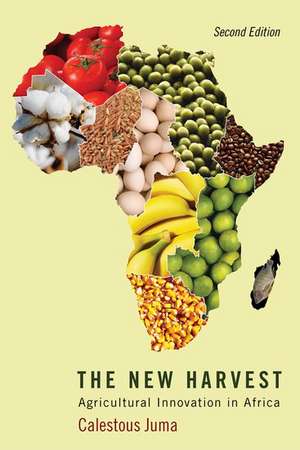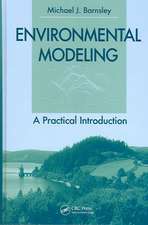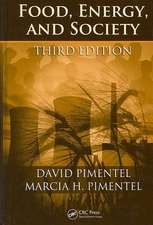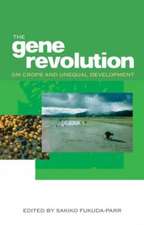The New Harvest: Agricultural Innovation in Africa
Autor Calestous Jumaen Limba Engleză Paperback – 24 sep 2015
| Toate formatele și edițiile | Preț | Express |
|---|---|---|
| Paperback (1) | 215.10 lei 10-16 zile | |
| Oxford University Press – 24 sep 2015 | 215.10 lei 10-16 zile | |
| Hardback (1) | 496.23 lei 39-50 zile | |
| Oxford University Press – 23 feb 2011 | 496.23 lei 39-50 zile |
Preț: 215.10 lei
Preț vechi: 245.50 lei
-12% Nou
Puncte Express: 323
Preț estimativ în valută:
41.16€ • 42.82$ • 33.98£
41.16€ • 42.82$ • 33.98£
Carte disponibilă
Livrare economică 13-19 martie
Preluare comenzi: 021 569.72.76
Specificații
ISBN-13: 9780190237233
ISBN-10: 0190237236
Pagini: 360
Dimensiuni: 208 x 137 x 23 mm
Greutate: 0.38 kg
Ediția:Revised
Editura: Oxford University Press
Colecția OUP USA
Locul publicării:New York, United States
ISBN-10: 0190237236
Pagini: 360
Dimensiuni: 208 x 137 x 23 mm
Greutate: 0.38 kg
Ediția:Revised
Editura: Oxford University Press
Colecția OUP USA
Locul publicării:New York, United States
Recenzii
This is a refreshing new book that steps back from the usual debates about appropriate agricultural policies and programme interventions for redressing Africa's pressing poverty and food security needs, to take a longer-term view of the kinds of science-based interventions that are needed to launch Africa's agricultural sector on a structurally different trajectory...Calestous Juma develops a compelling vision of how knowledge and innovation systems that bring together the best of modern science and local knowledge could...lead to agricultural growth clusters that would drive national and regional economic growth across Africa.
[Calestous Juma's] optimism is refreshing
A remarkably optimistic outlook for agriculture in Africa...Juma's account succeeds in offering a glimpse of the possible. The book provides a welcome relief from the gloom and despair in popular narratives about African agriculture.
My husband [Lloyd Timberlake, author of Africa in Crisis] came into the house yesterday, tossed me [this] book and said: 'You and your staff should read this book from beginning to end. Every single page. It is all you need to know to do your job.' I have never heard him sound like that about any book!
Calestous Juma of Harvard University, has produced a book of evidence-based recommendations for transforming African food production. As Professor of the Practice of International Development and Director of the Science, Technology, and Globalization Project at Harvard, he recognises the shortcomings of the past, particularly the lack of political and, consequently, financial commitment to agriculture, but he also instances the recent changes in political and investment emphasis that could provide foundation for a new and more fruitful era.
Calestous Juma draws on a rich harvest of research to write a convincing analysis of the importance of innovation and entrepreneurship in the agricultural sectors of Africa. Hopefully, it will be widely read by scholars and policy analysts across Africa as well as outside. It is a great book.
Calestous Juma has once again produced a book that will be an important reference for scholars, researchers and practitioners in their search for ways to break the persistent conundrum that is Africa's failure to properly exploit its huge agricultural potential. The book reveals his exceptional ability to express ideas that will be relevant to the emerging trends in Africa's agricultural and political economy.
This book presents a timely analysis of the importance of infrastructure in improving Africa's agriculture. Leaders at national and state levels will benefit immensely from its evidence-based recommendations.
This book is a forceful reminder of the important role that African women play in agriculture on the continent. It is critical that they are provided with equal educational opportunity as a starting point for building a new economic future for the continent.
New technologies, especially biotechnology, provide African countries with additional tools for improving the welfare of farmers. I commend this book for the emphasis it places on the critical role that technological innovation plays in agriculture. The study is a timely handbook for those seeking new ways of harnessing new technologies for development, including poor farmers, many of whom are women.
The New Harvest underscores the importance of global learning in Africa's agricultural development. It offers new ideas for international cooperation on sustainable agriculture in the tropics. It will pave the way for improved collaboration between Africa and South America.
Through The New Harvest, Professor Juma is sending a timely and optimistic message, going well beyond what has already been written about agriculture in Africa. The book is timely because we are experiencing a double-dip food price crisis, but also because a new generation of African leaders is committing 10% of their countries' budgets to agriculture. It is optimistic, because many African countries are growing at an impressive pace, including in agricultural productivity.
Lively, provocative and well-evidenced.
I applaud the two main messages of the book: that science and technology can help increase agricultural productivity; and that agricultural productivity is a powerful tool in reducing poverty.
This eminently readable book is full of golden nuggets. Calestous Juma goes to great lengths to make clear, particularly to us in the West who think that we have all the solutions for African agriculture, that there is no single solution to Africa's problems. We should listen to the people who must do the seed propogation and promotion, to the women who will grow and harvest the seeds and to those responsible for storage and distribution whilst not forgetting the importance of livestock. He shows how we can help to provide the means by working from the bottom up rather than the top down in education, transport infrastructure, water conservation and power sources. The book should be read by all those intending to help Africa.
With the current economic situation reinforcing the urgency to find lasting solutions to Africa's challenges, The New Harvest is a worthy addition to the discussion.
[Calestous Juma's] optimism is refreshing
A remarkably optimistic outlook for agriculture in Africa...Juma's account succeeds in offering a glimpse of the possible. The book provides a welcome relief from the gloom and despair in popular narratives about African agriculture.
My husband [Lloyd Timberlake, author of Africa in Crisis] came into the house yesterday, tossed me [this] book and said: 'You and your staff should read this book from beginning to end. Every single page. It is all you need to know to do your job.' I have never heard him sound like that about any book!
Calestous Juma of Harvard University, has produced a book of evidence-based recommendations for transforming African food production. As Professor of the Practice of International Development and Director of the Science, Technology, and Globalization Project at Harvard, he recognises the shortcomings of the past, particularly the lack of political and, consequently, financial commitment to agriculture, but he also instances the recent changes in political and investment emphasis that could provide foundation for a new and more fruitful era.
Calestous Juma draws on a rich harvest of research to write a convincing analysis of the importance of innovation and entrepreneurship in the agricultural sectors of Africa. Hopefully, it will be widely read by scholars and policy analysts across Africa as well as outside. It is a great book.
Calestous Juma has once again produced a book that will be an important reference for scholars, researchers and practitioners in their search for ways to break the persistent conundrum that is Africa's failure to properly exploit its huge agricultural potential. The book reveals his exceptional ability to express ideas that will be relevant to the emerging trends in Africa's agricultural and political economy.
This book presents a timely analysis of the importance of infrastructure in improving Africa's agriculture. Leaders at national and state levels will benefit immensely from its evidence-based recommendations.
This book is a forceful reminder of the important role that African women play in agriculture on the continent. It is critical that they are provided with equal educational opportunity as a starting point for building a new economic future for the continent.
New technologies, especially biotechnology, provide African countries with additional tools for improving the welfare of farmers. I commend this book for the emphasis it places on the critical role that technological innovation plays in agriculture. The study is a timely handbook for those seeking new ways of harnessing new technologies for development, including poor farmers, many of whom are women.
The New Harvest underscores the importance of global learning in Africa's agricultural development. It offers new ideas for international cooperation on sustainable agriculture in the tropics. It will pave the way for improved collaboration between Africa and South America.
Through The New Harvest, Professor Juma is sending a timely and optimistic message, going well beyond what has already been written about agriculture in Africa. The book is timely because we are experiencing a double-dip food price crisis, but also because a new generation of African leaders is committing 10% of their countries' budgets to agriculture. It is optimistic, because many African countries are growing at an impressive pace, including in agricultural productivity.
Lively, provocative and well-evidenced.
I applaud the two main messages of the book: that science and technology can help increase agricultural productivity; and that agricultural productivity is a powerful tool in reducing poverty.
This eminently readable book is full of golden nuggets. Calestous Juma goes to great lengths to make clear, particularly to us in the West who think that we have all the solutions for African agriculture, that there is no single solution to Africa's problems. We should listen to the people who must do the seed propogation and promotion, to the women who will grow and harvest the seeds and to those responsible for storage and distribution whilst not forgetting the importance of livestock. He shows how we can help to provide the means by working from the bottom up rather than the top down in education, transport infrastructure, water conservation and power sources. The book should be read by all those intending to help Africa.
With the current economic situation reinforcing the urgency to find lasting solutions to Africa's challenges, The New Harvest is a worthy addition to the discussion.
Notă biografică
Calestous Juma is Professor of the Practice of International Development and Director of the Science, Technology, and Globalization Project at Harvard University.








